This Longhorn Is a World Traveler and Points Master
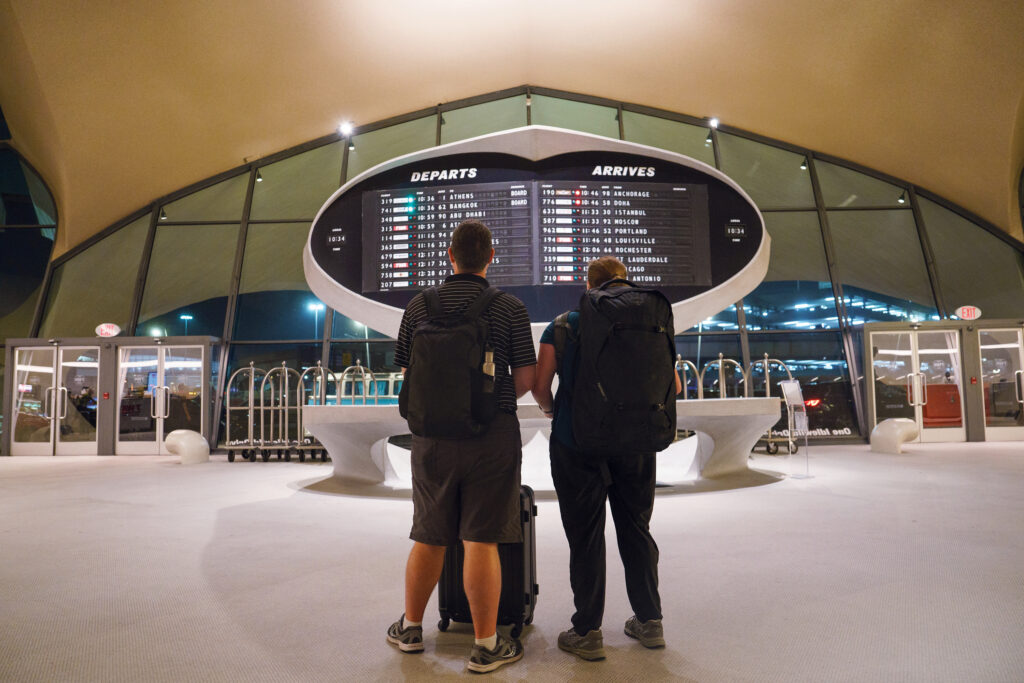
Most days, you’re likely to find Katie Genter, PhD ’17, in front of a laptop … just not quite in the way that she would have expected when she was studying computer science at the Gates-Dell Complex. And especially not where she expected.
In the first nine months of 2023, Katie and her husband, JT Genter, have been to 68 cities and 22 countries. They started the year with a flight from Birmingham, Alabama, through Dallas, Texas, to Sydney, Australia, with stops in Brisbane, Hamilton Island, and Melbourne. This summer, the Genters attended a music festival at the Gorge in Central Washington in between a July spent mostly in France and an August in South Korea, China, and Japan. They also snuck into Austin for a couple of days, visited their families in Florida and Georgia, and attended a professional conference in Minneapolis … before flying out of New York City for two weeks in Bali. By the time this issue of the Alcalde hits your mailbox, they’ll be on a trip to Qatar, Kuwait, Jordan, and the United Arab Emirates—the latter for just one day to catch a flight to London. On any given night, Katie and JT might be RVing in a state park or dining on a flight where the service is fancy enough to merit actually enjoying the food.
But the Genters don’t spend much money on travel at all. They are what some call “points and miles” people—masters of frequent flier programs, hotel loyalty programs, and credit cards—as well as “digital nomads,” without a permanent physical home since they emptied out their apartment the year Katie graduated. They have managed to turn their passions for both travel and savings into careers.
In most cases, “digital nomad” might mean someone who spends a few months or a year in one exotic place, working for an American company. The Genters instead live week-to-week, and sometimes even day-by-day. They also aren’t remote working per se, because the travel is the job. They are simultaneously journalists, participants, and role models in how to use points and miles. Katie is currently a writer and senior editor for the The Points Guy website, to which she’s contributed since 2015, while JT, who also previously wrote for TPG, is currently editor-in-chief of the points and miles tracking service AwardWallet.
If you travel frequently for work or pleasure, you probably have a preferred airline, perhaps with an affiliated credit card. You probably stick with that airline in order to rack up the bonus miles and perks (early boarding, a free checked bag, seat upgrades) that come with elite frequent-flyer status. Maybe you’ve even signed up for one or two credit cards in recent years specifically to collect a welcome bonus or certain useful statement credits.
But those fundamentals have little in common with the Genters’ strategy. To pull it off requires a lot of research, work, and elaborate spreadsheets. Less necessary are Katie’s PhD in computer science or JT’s background in accounting, though both certainly help. It also takes a lot of credit cards—Katie and JT’s current total between them is 56, including eight new ones just in the past year.
The lifestyle is, needless to say, not for everybody.
“Most people shouldn’t even have eight cards, much less get eight cards in a year,” Katie says.
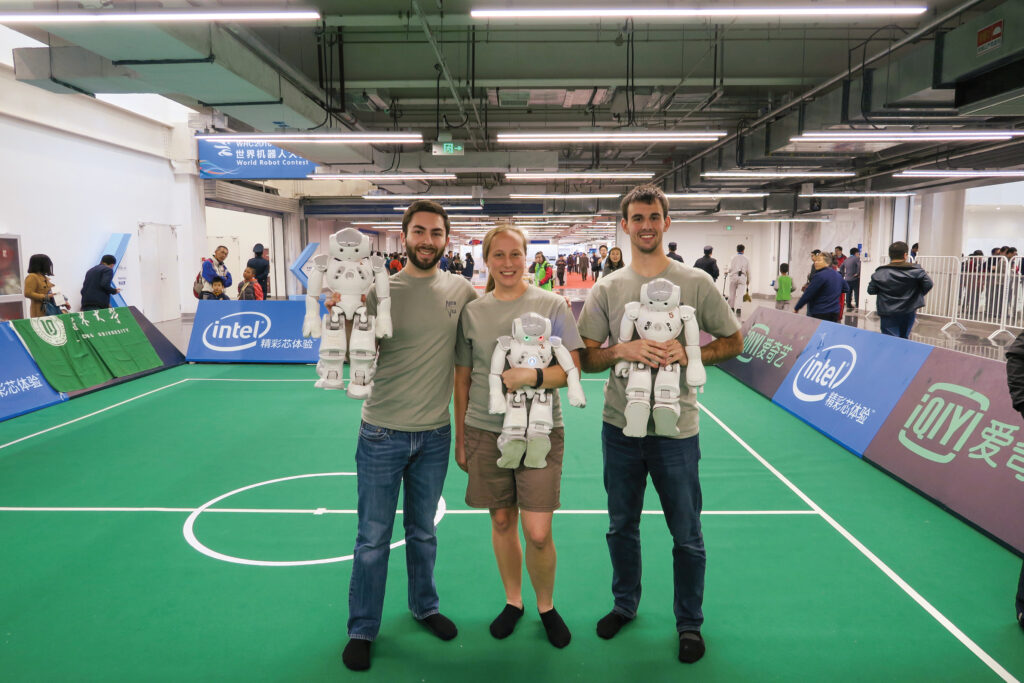
It all started at RoboCup.
That’s an international robot soccer tournament, not a Paul Verhoeven movie. And whether you call it a sport or an academic research project (it’s both), it’s yet another area where The University of Texas excels. It’s also what initially brought Katie Genter to Austin … and then turned both the Genters into travelers.
The daughter of an accountant (mom) and a programmer (dad), Katie grew up in Cumming, Georgia, about an hour north of Atlanta, and got her bachelor’s in computer science at Georgia Tech. That’s where she met JT—and also where she first attended RoboCup. The tournament, in which computer science students from around the world program robots to compete in soccer, was held there in 2007. Genter volunteered at the event, where she first encountered Peter Stone, UT computer science professor and director of the Texas Robotics program. When she decided to look at graduate schools, Stone’s influence and the students she met who were already in his Learning Agents Research Group made UT the perfect fit. Her plan then was the same as most PhD candidates: to eventually teach and conduct research as a professor herself. But first, there was RoboCup.
In 2011, RoboCup had been held in Istanbul; that became Katie and JT’s first big international trip together, with time built in for tourism. The next year, Katie helped lead UT’s “Austin Villa” team to victory in Mexico City as a second-year grad student. Even though the 2012 tournament was relatively close to home, JT had to miss it due to work. But he still got to be a big part of the championship celebration, lobbying the Office of the President to light the Tower orange to commemorate Austin Villa’s win.
He vowed never to miss another one again, especially with Katie joining the event’s organizing committee in 2013. RoboCup became their annual vacation: the Netherlands in 2013, Brazil in 2014. Katie’s travel expenses, at least for RoboCup itself, were covered by the team, while JT found himself cheap flights.
Then came 2015, when the tournament was in Hefei, China, and he couldn’t find anything for less than $2,000 round-trip. By then JT had started following this website called The Points Guy and had even met the eponymous “Points Guy” himself, Brian Kelly, at South by Southwest that year. Feeling inspired, JT decided to apply for a Chase credit card that offered 70,000 “Chase Points” upon creation of the account.
“I had no idea what Chase Points could get you,” JT says. “But I found out you could transfer them to United. And what do United miles get you? Oh, you can fly one-way to China for 35,000 miles. I was hooked after that.” Soon Katie would be, too.
Over the next couple of years, JT started blogging himself and then freelancing for TPG, including writing about that first trip to China. Eventually he was contributing so much that he took a sabbatical from his accounting job to write and travel for a while. Instead, Kelly asked him not to go back to accounting. And Katie eventually joined The Points Guy as a freelancer. She wrote a fair amount of her PhD thesis—on the potential use of robotics to keep birds from flying into plane propellers and wind farm blades—aboard an airplane.
After Katie graduated, the Genters decided to go all-in to pursue their love of travel and the points-and-miles lifestyle. They packed up their house in Austin’s Far West neighborhood even as Katie defended her PhD (the easy part, compared to writing the thesis) and sold or gave away everything they owned except whatever could fit in their respective cars, which they then stashed at their parents’ houses. Ditching nearly all of their possessions was emotional but ultimately freeing, Katie says.
But they had no idea if any of it would be sustainable—mentally, physically, or financially.
“I think we figured we would be on the road for about a year,” Katie says. “Maybe more.” That was more than six years ago.
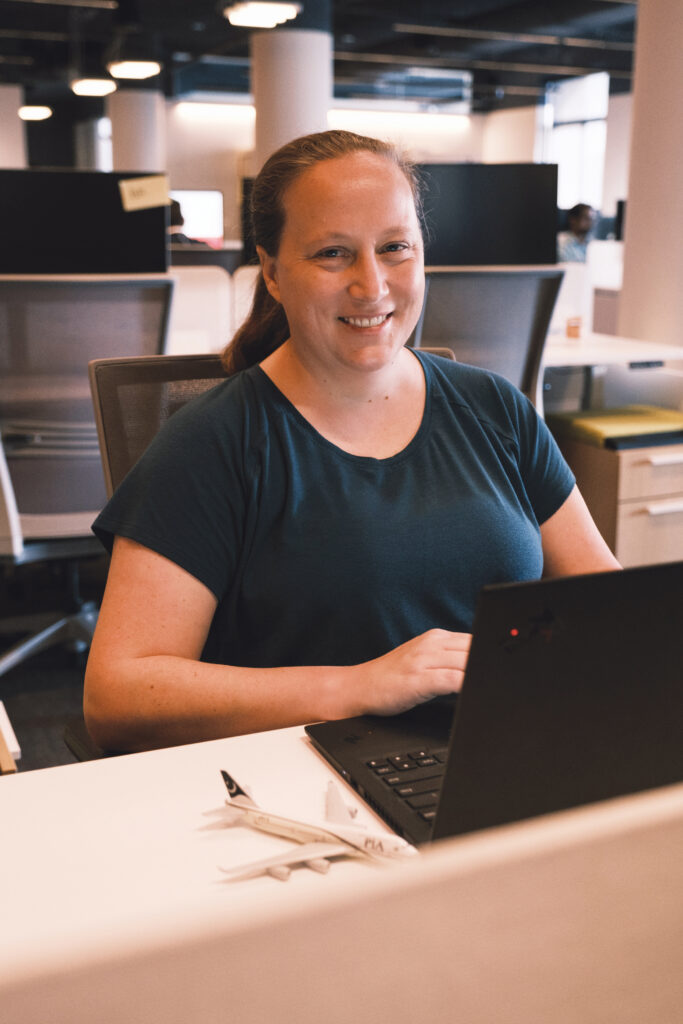
Technically, the Genters’ home is in Neptune Beach, Florida, where JT’s mom lives. That’s where they send their mail, go to the dentist, have a library card, and vote. They also keep an RV in Georgia, where both Katie’s parents and JT’s father live.
The RV was acquired early in the COVID-19 pandemic, which almost trapped them in Johannesburg, South Africa. As borders began to close, JT was able to get them both on the second-to-last Delta flight back to the United States.
“The airport was pretty much apocalyptic,” Katie says. “People were panicking, flights were being canceled and delayed. You’re hearing the prices some people paid, and we felt very thankful that we got back on points.”
In the first year of the pandemic, they lived with their respective parents for a while—and then, naturally, found an RV relocation rental that would allow them to road trip from Los Angeles to Dallas for $1 a day. They eventually bought a used RV of their own and drove full-time for about a year before returning to international travel in the (mostly) vaccinated world.
Part of their job, including JT’s social media presence, is to show people how it can be done. To paraphrase Renée Zellweger’s character in Jerry Maguire, first class used to be about a better meal, and now it’s about a better life—but there are lots of ways to improve the travel experience without making it to first class.
For example, it’s unthinkable for the Genters not to check a bag each; they are on the road too much and for too long not to. Contact lens solution alone would have to be restocked constantly if they could only carry it in 3-ounce bottles. But they certainly don’t pay checked bag fees. And if a canceled flight strands them for eight hours at an airport, they are probably relaxing in a lounge and/or have delay insurance, plus elite traveler status that means they don’t have to stand in one of those interminable customer service lines to get rebooked.
“We’re not the travelers that are sleeping on the chairs in the terminal,” JT says. “We were those travelers back when, but not anymore.” (Though they still fly coach plenty, the Genters note, especially with Southwest’s companion pass.)
The line between work and play can be fine—and the work is still work. The booking (JT handles the flights; Katie, the accommodations), the writing, the transit itself, and the fact that they move around so much instead of hanging somewhere for a long time.
“It can be exhausting,” Katie says. “You can feel like you’re always working, not experiencing the place.”
But since they are both essentially business reporters rather than experiential travel writers, once they turn in the story, they can have their fun. If they’re at the pool, it’s because they want to go to the pool, not because they have to get a picture of the pool for a hotel review. And while they delight in getting fed the best possible food for the least amount of money when they are in hotels, airline clubs, or planes, they are also not going to let that keep them from hitting all the restaurants they want to in Japan.
Will it ever end?
Teaching may still be in Katie’s future, but not so long as she’s nomadic. And they even managed to bring a pet along with them for a while: Their cat Gracie, whom they’d gotten in 2006, put in a lot of miles. (According to her European “pet passport,” she was of German origin.) Gracie once “wrote” a fairly withering review of the then-Kimpton New York City hotel the Ink 48, and lived with Katie’s mom when she didn’t join in on the travels. She died in 2022—which ended up being another time that points and miles served for more than just fun, when the Genters booked a last-minute, cross-country flight to Georgia to be with her.
And kids? They aren’t sure if they want to have them, but if they do, they would by no means give up travel. They have met others who still travel full-time with children, for whom the entire world becomes their school. There are also so-called “traveling circuses,” or groups of nomadic families who have teachers in their group.
“People ask us about this all the time,” Katie says. “Like, ‘oh, when are you going to settle down? Where are you going to get a house? When are you going to stop doing this?’ And we’ve always just said, “whenever we don’t want to be doing this anymore.’”
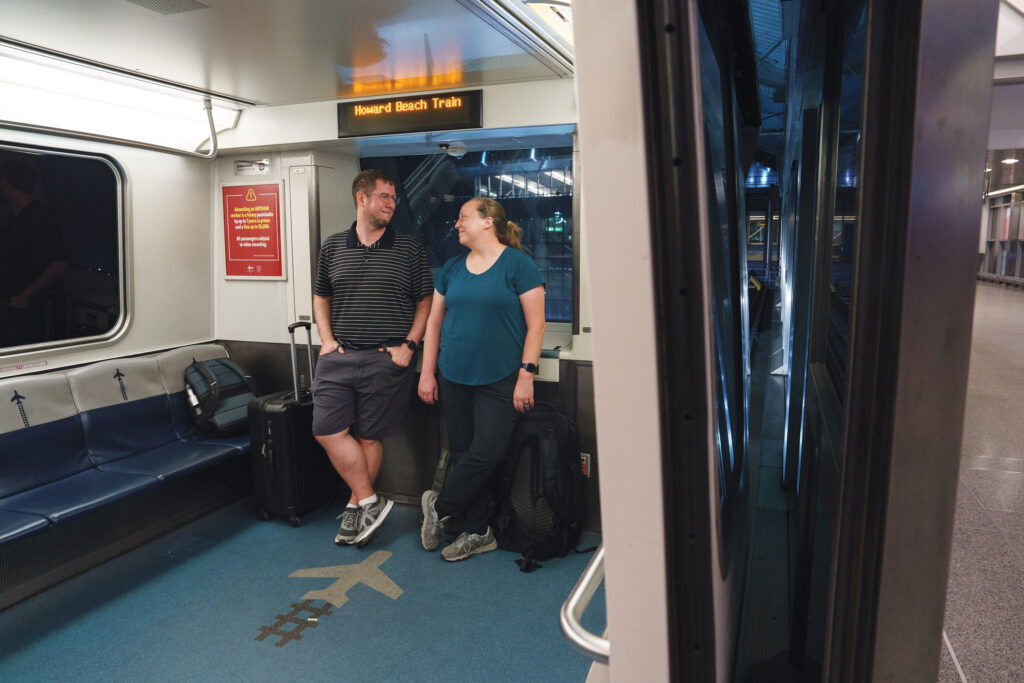
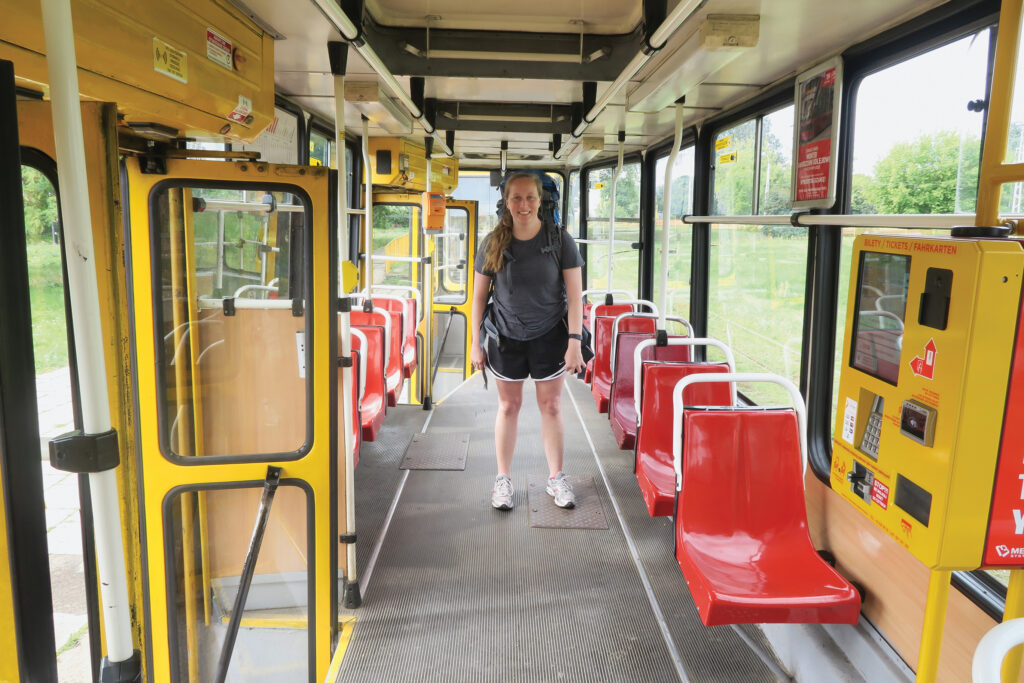

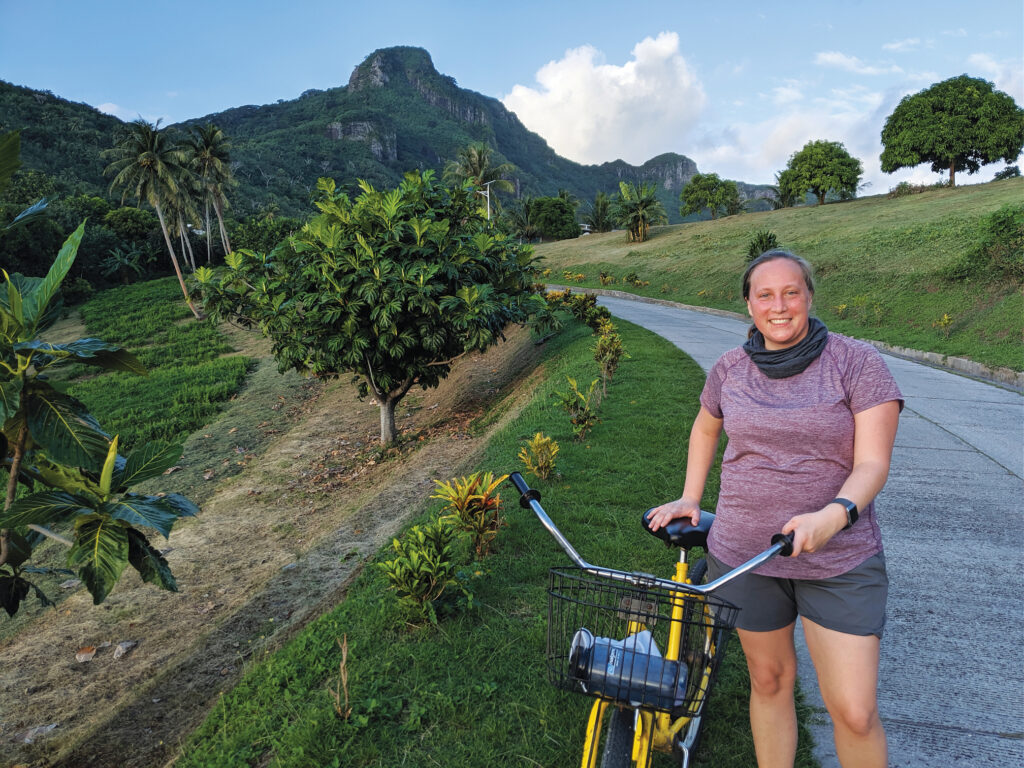
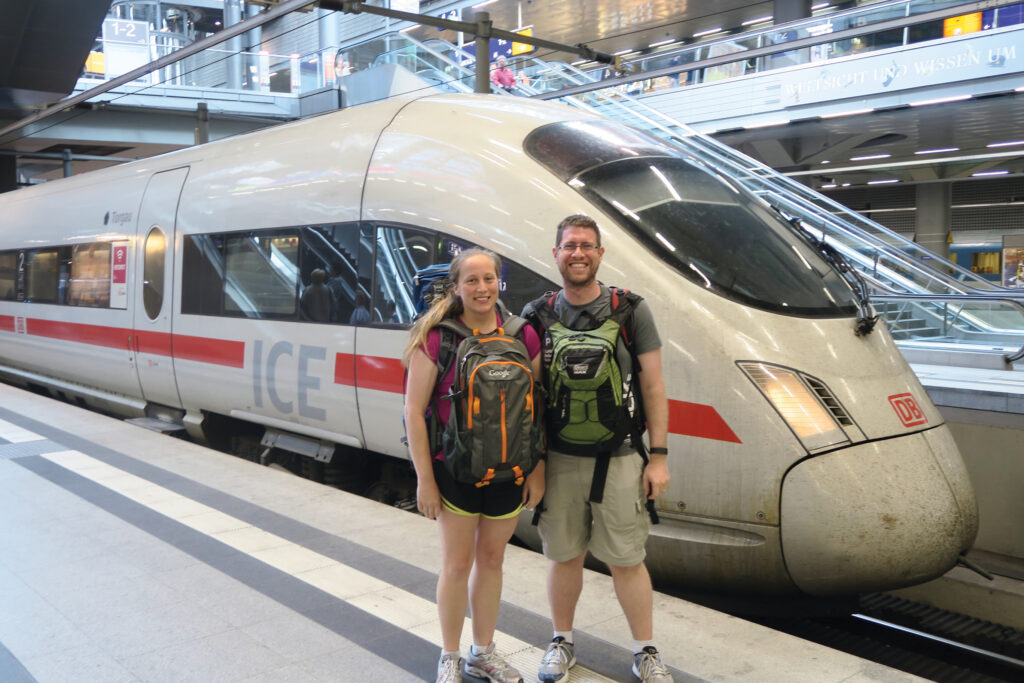

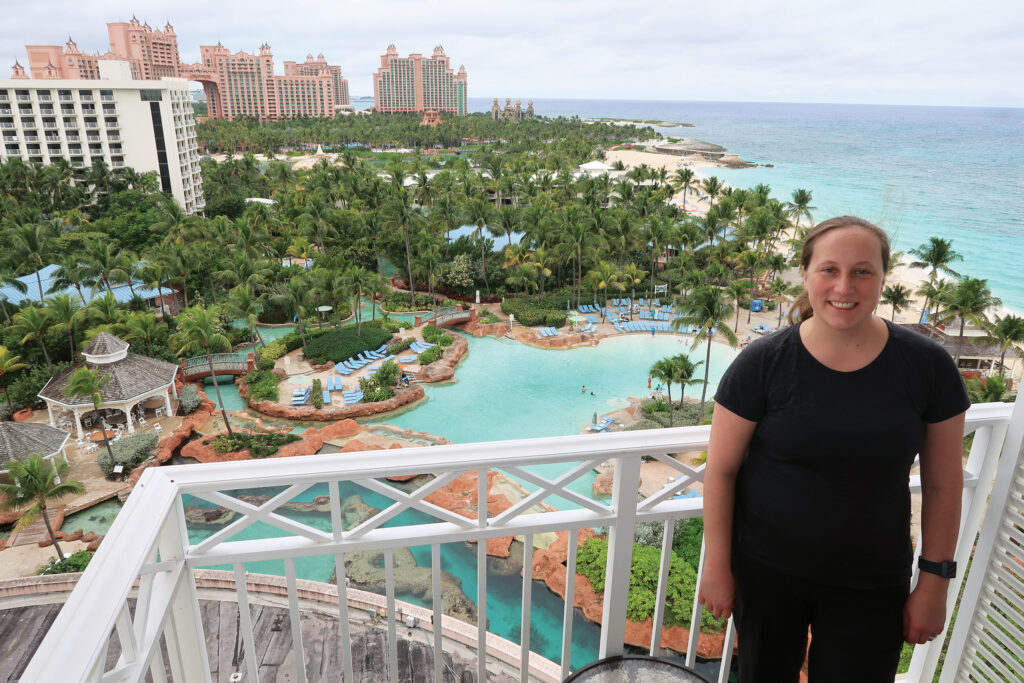
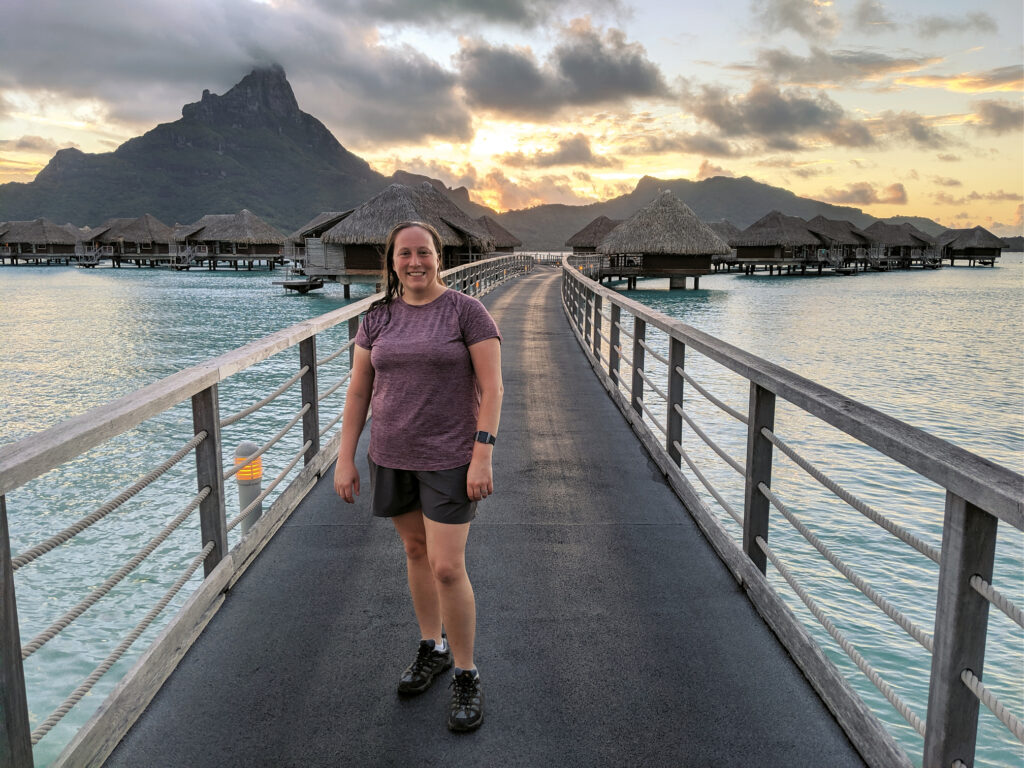
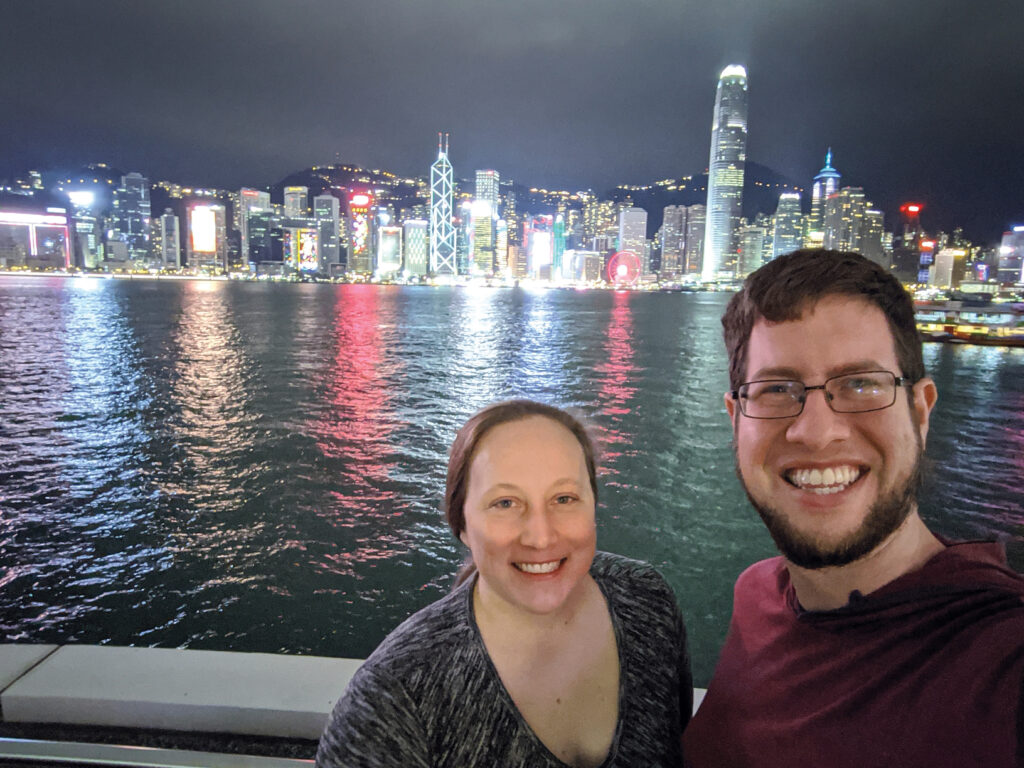
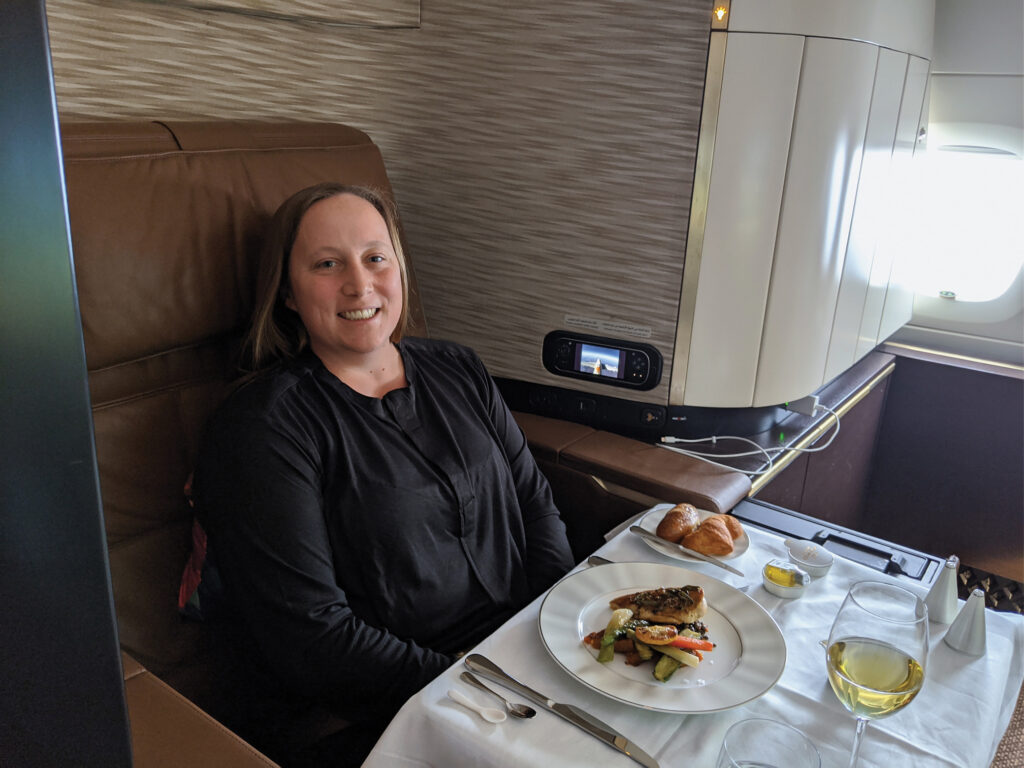
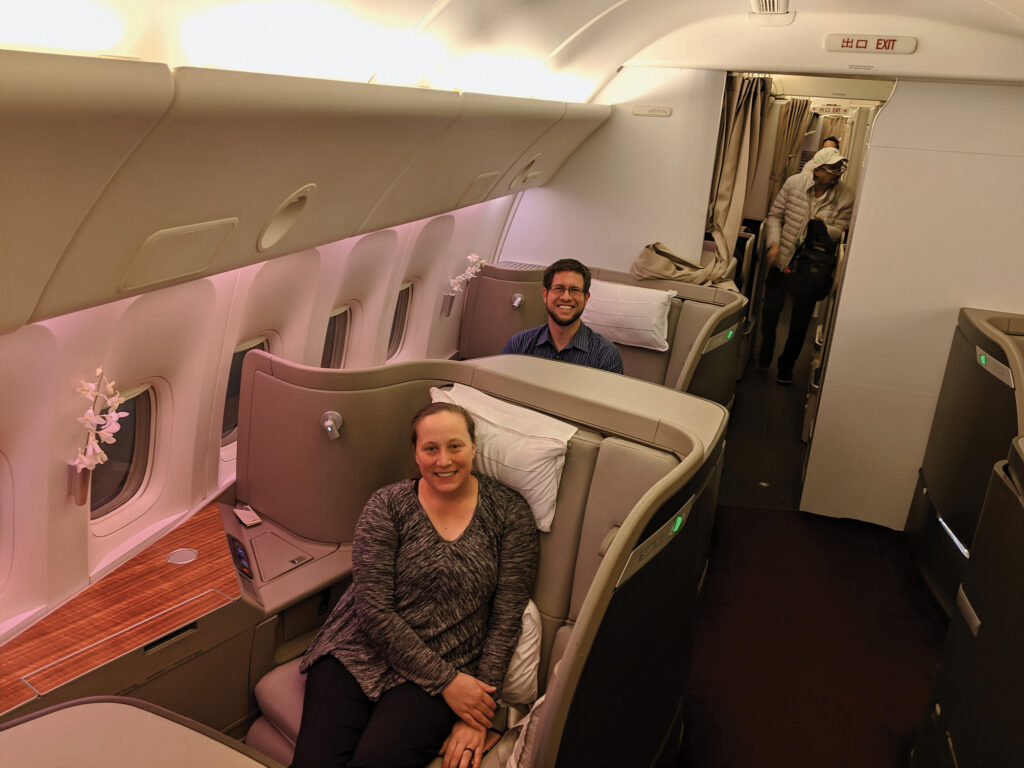
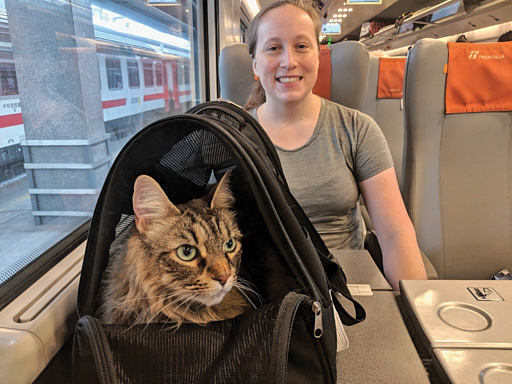
CREDITS: Photographs by Jon Pack and courtesy of Katie Genter






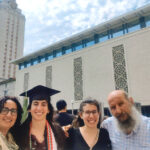






2 Comments